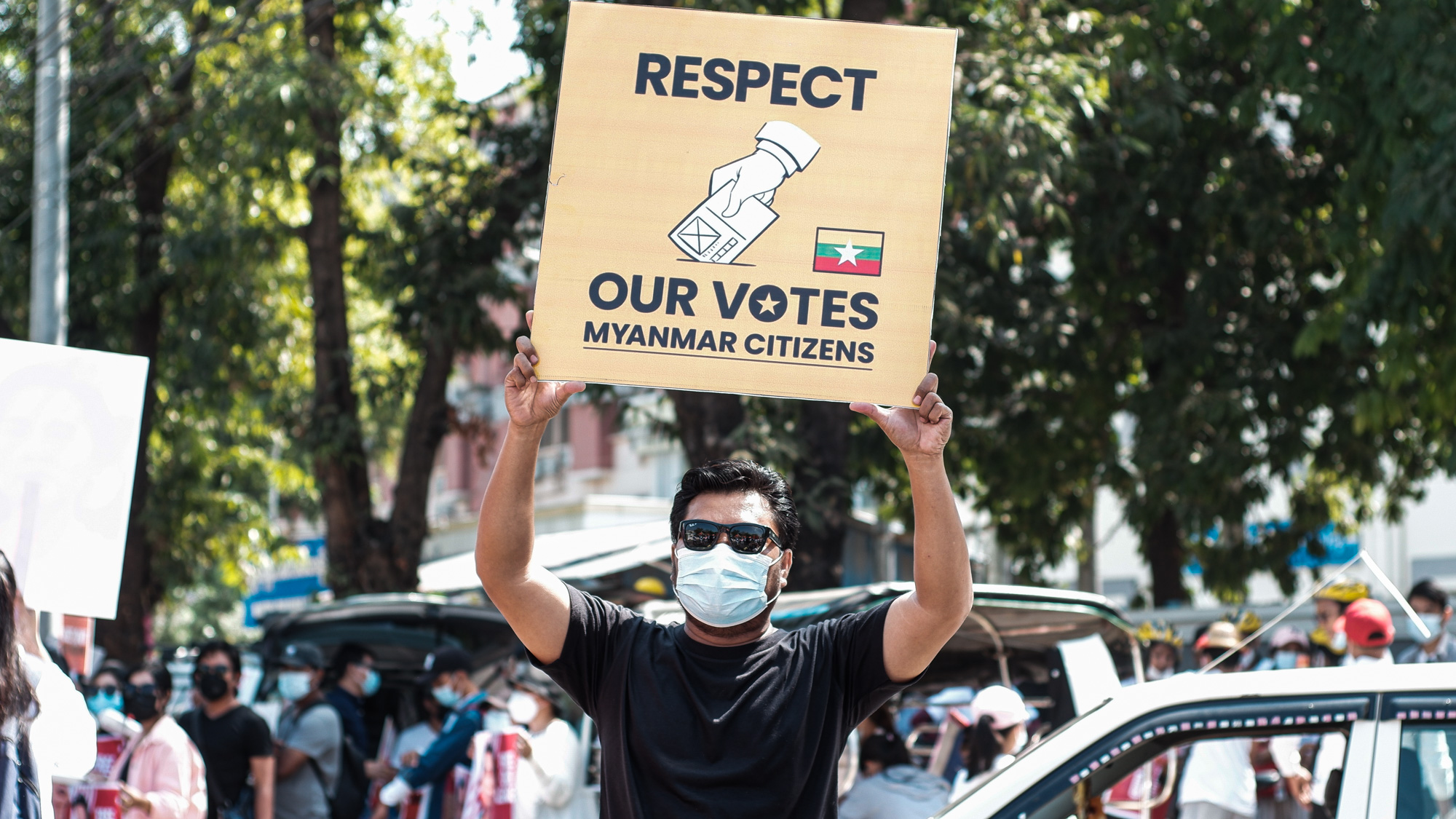
Rising human rights campaigning in recent years has caused a serious headache for the financial sector over investments in crisis-hit countries such as Yemen and Palestine.
In 2021, this issue has again been put under the spotlight by Myanmar’s February 2021 military coup and subsequent crackdown, which has caught out global firms that invested in the country after Aung San Suu Kyi was elected and economic sanctions were lifted. Given the military’s extensive business connections, including direct ownership of at least two major Myanmar-based companies, many companies now find themselves exposed to serious reputational risks.
Parallels can be drawn between NGO divestment campaigning on Myanmar and that concerning Yemen and Palestine. In Yemen, pension funds have repeatedly been targeted by NGOs over investments in arms companies such as Airbus, BAE, and Boeing, with accusations that they are fuelling the civil war that has raged since 2014. In Palestine, targeting has taken a broader focus on financial institutions’ continued investments across several sectors of the Israeli economy, including Deutsche Bank’s ties to infrastructure, telecoms, and tourism companies, all of which have been accused of funding “war crimes” in occupied territories.
Campaigning on Myanmar has followed a similar path. Pension funds with investments in firms linked to the Myanmar military, accused of effectively funding the regime’s brutality, have taken the brunt of the reputational damage. Business partnerships with the military-run Myanmar Economic Holdings Limited (MEHL), Myanmar Economic Corporation (MEC), and Myanmar Oil and Gas Enterprise (MOGE) have been a particular focus.
Interestingly, NGOs claim companies did have some forewarning of this issue as early as 2019. Activist groups such as Justice for Myanmar (JFM), Danwatch, and Svenska Burmakommitten, which targeted 19 Scandinavian pension funds over direct and indirect investments in the Myanmar energy, construction, and telecoms sectors, claimed six of these funds were warned by the UN in 2019 to divest from Myanmar. They were referring to the UN Fact-Finding Mission on Myanmar, which exposed persistent human rights violations within the country and was firm in its demands for companies to divest from military-affiliated businesses. Additionally, even before the coup, NGO criticism of Myanmar had been building due to the well-publicized victimization of the country’s Rohingya Muslim minority.
Unsurprisingly, especially given the accusations that companies were pre-warned on the issue, anything but full divestment from Myanmar is now insufficient to appease NGOs. Any firms which ignored calls to withdraw in 2019 have been left exposed, and those that did withdraw, including Paedagogernes Pensionskasse, have received NGO praise.
So, what can all this tell us about how business should respond to NGO campaigning on human rights?
Human rights as a focus of NGO targeting is undoubtedly growing, as firms are held to account not only for their own operations, but also for those of their global supply chains. Multinationals need to think about how seriously they are considering the “S” of ESG in relation to the “E”, which has traditionally been the focus of attention. Financial institutions and investors also need to heed early NGO warnings of possible human rights abuses, and not just wait for well-known cases if they are to avoid significant reputational and economic risk.
What our clients say
What our
clients say
“In our experience, SIGWATCH is one of the few sources of ESG data we can absolutely trust to be reliable.”
“Our company is based in Japan. Most employees are Japanese and we don’t really know what is happening around the world. SIGWATCH gives us visibility of the global ESG issues and trends we need to have on our radar.”
“With SIGWATCH, we’re able to absorb NGO data in an awesome way that
simply wouldn’t be possible otherwise. We can hear the NGOs’ voice, to better
strategize and get ahead of trending issues.”
“With social listening, we’re limited to knowing what people are saying only about OECD. With SIGWATCH, we see not only what is being said about us, but also what is being said about everyone else.”
“A lot is said and written about sustainability and ESG every day but no one,
apart from SIGWATCH, provides the big picture, SIGWATCH offers a comprehensive overview of what’s happening in the corporate sustainability
world rather than just a narrow snapshot.”
“SIGWATCH is a good source to show that NGOs are watching us and watching our clients, and we definitely need to be aware of the issues they are bringing up.”

